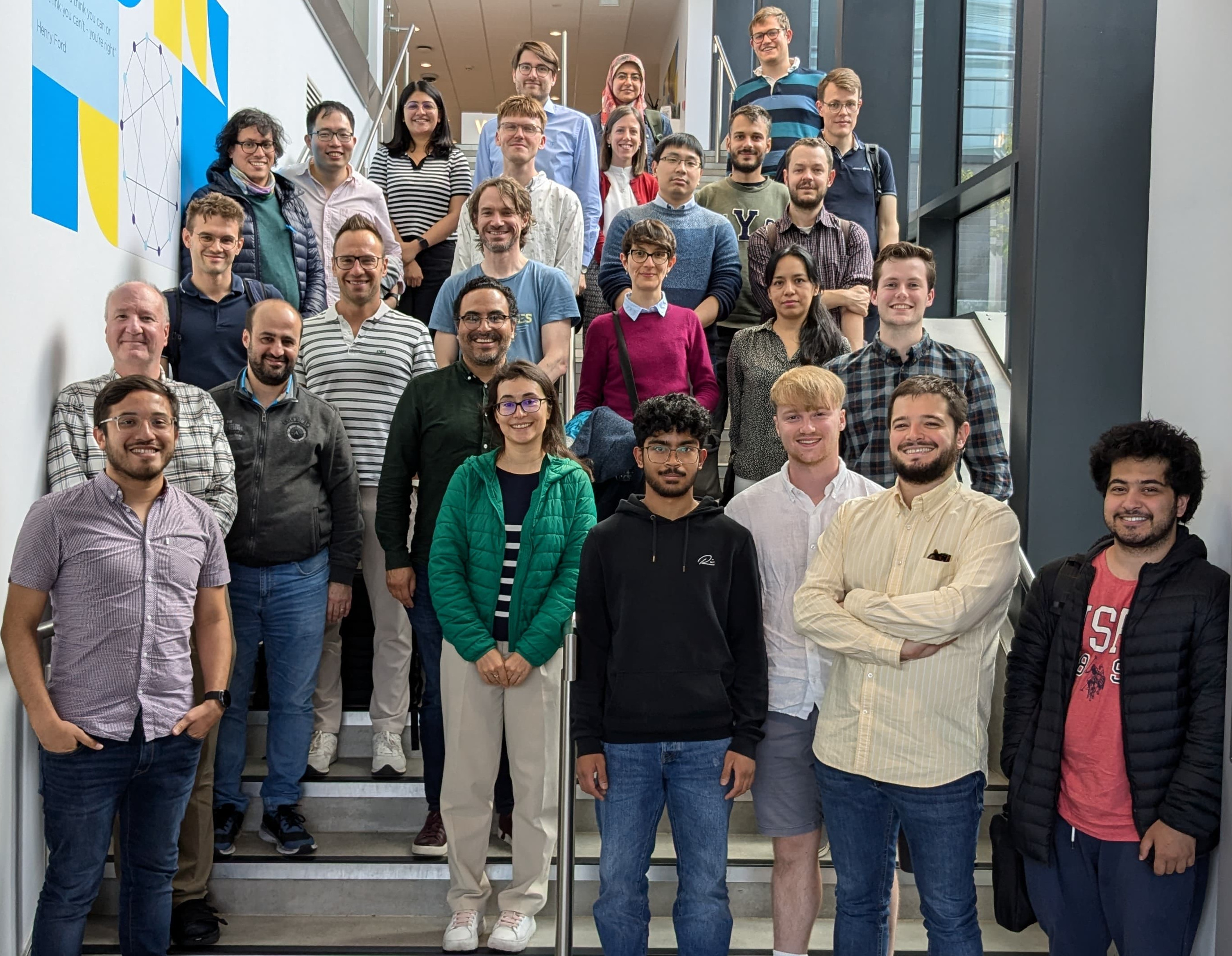Second Meeting of the UK Metric Geometry and Analysis Network
MCS2068
Department of Mathematical Sciences

This is the second meeting of the UK Metric Geometry and Analysis Network, a network which brings together working groups from Cardiff University, Durham University, University of Oxford, University of Stirling, the University of Warwick and beyond.
The network focuses mainly on topics in differential geometry and geometric analysis which include:
- Alexandrov spaces
- Manifolds with lower curvature bounds
- RCD spaces
- Lorentzian geometry
- Geometric PDEs
Speakers
- Asma Hassannezhad (Bristol)
- Ana Lucía García Pulido (Stirling)
- Mattia Magnabosco (Oxford)
- Ambrose Yim (Cardiff)
Programme
The event will take place in room MCS2068 of the Mathematics and Computer Science building.
- 09:00 - Welcome
- 09:15 - Ana Lucía García Pulido: Bi-Lipschitz embeddings of measures with partial transportation distances
- 10:15 - Coffee Break
- 10:30 - Ambrose Yim: Reconstructing the topology of manifolds
- 11:30 - Community Updates
- 11:45 - Mattia Magnabosco: Failure of the curvature-dimension condition in sub-Finsler manifolds
- 12:45 - Lunch Break
- 14:15 - Asma Hassannezhad: Pleijel Nodal domain theorem for the Robin problem on Lipschitz domains
- 15:15 - End
Organisers
Fernando Galaz-García & Martin Kerin Durham University.
Arrival Information
The nearest train station is Durham (DHM), which is 10-15 minutes from the centre of the city.
The Mathematics and Computer Science building is about 20-25 minutes away from the city centre on foot.
Here's a map showing the Mathematics and Computer Science building to the south of the city centre, and the train station to the north on the west of the river.
On-campus Accommodation
If you are interested in staying in an ensuite room on campus on the night of 29 August (cost £63pp), including breakfast on 30 August, please make a reservation here by Tuesday, 13 August.
Support
We gratefully acknowledge the support of the London Mathematical Society through the Joint Research Group scheme.
This network is supported by a project that has received funding from the European Research Council (ERC) under the European Union’s Horizon 2020 research and innovation programme (Grant agreement No. 802689; PI: A Mondino).
The network is also supported by a UKRI Future Leaders Fellowship [grant number MR/W01176X/1; PI: J Harvey].
